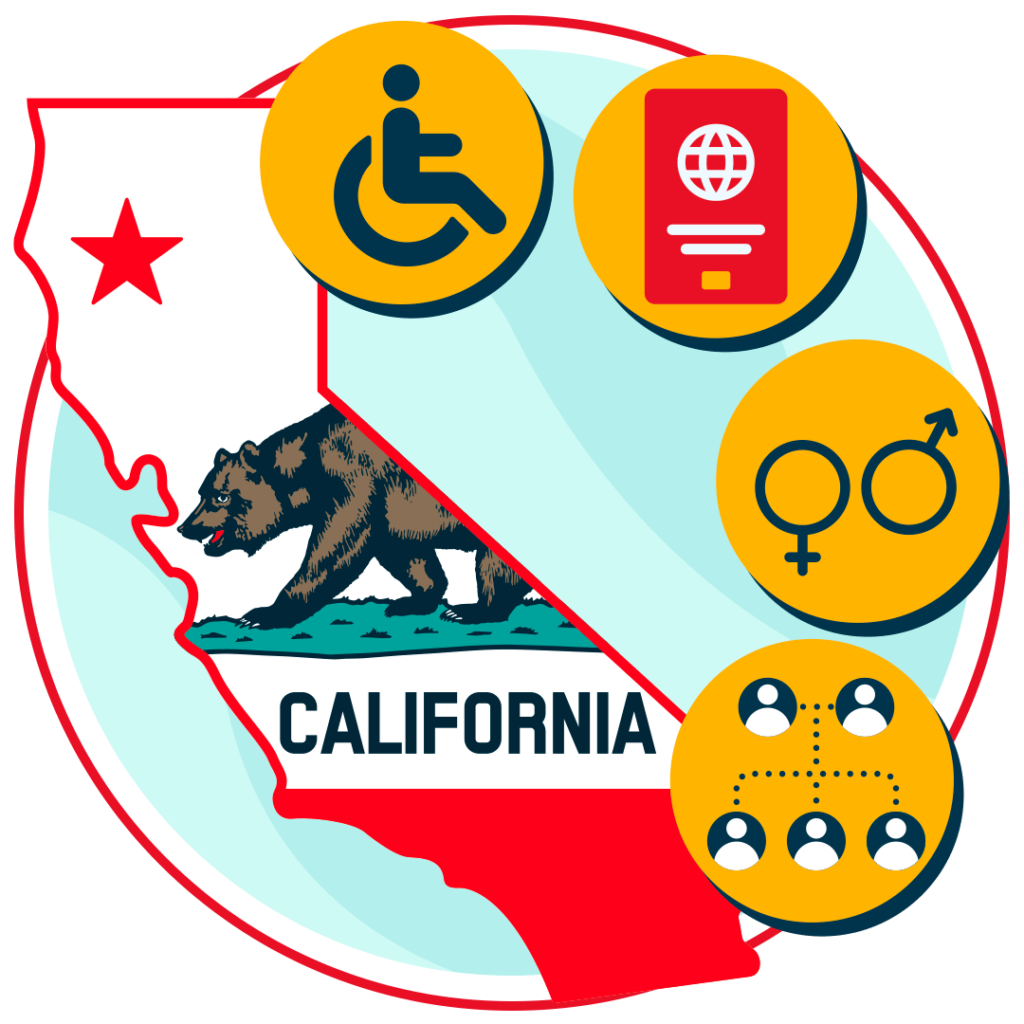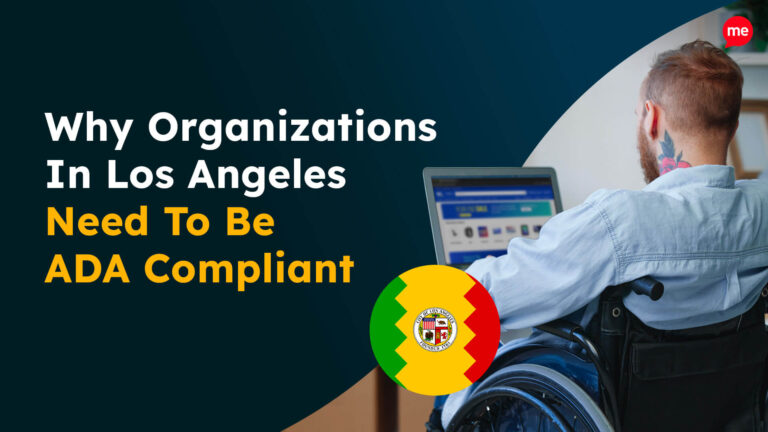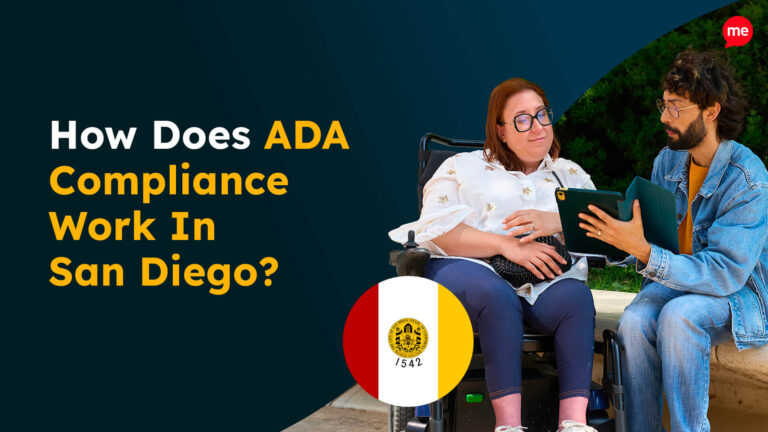Get A Free ADA Compliance Audit Of Your Website
Download NowAs the world we live in becomes increasingly more digital, legislation around websites and other online platforms becomes stricter. Knowing how to successfully navigate accessibility legislation is essential to maintaining your brand reputation, avoiding steep penalties, and fostering an inclusive environment. The Unruh Civil Rights Act is one of the more stringent pieces of legislation in this realm; a beacon of equality and accessibility for the state of California. This article explores the digital implications of the act and offers a complete guide to compliance.

What is the Unruh Civil Rights Act?
Enacted in 1959 in California, the Unruh Civil Rights Act prohibits any business from discriminating against individuals because of their age, color, ability, national origin, race, religion, sex, or sexual orientation.
As such, the Unruh Civil Rights Act has become a cornerstone of equality in California. Named after Jesse M. Unruh, a California state legislator, the Act mandates that all people within the state are entitled to all accommodations, advantages, facilities, privileges, and services that businesses offer.
This was a truly groundbreaking piece of legislation for its time. But as society has evolved, so too has the scope of the Unruh Act. In our current digital society, its provisions extend beyond that of physical premises, encompassing online and digital spaces too. Businesses with an online presence, for example, must now ensure that their websites and digital platforms are accessible to everyone, including individuals with disabilities or impairments, making a clear statement that digital discrimination is as unacceptable as its physical counterpart. This shift is testament to the way the internet has shaped our daily lives, our shopping habits, and the way we interact with each other.
With that said, this article tells the story of the Unruh Civil Rights Act in our modernized society, looking at compliance-related aspects through a digital lens.
Want to make sure your website is compliant with the Americans with Disabilities Act? Then unlock the ADA compliance checklist now. Discover actionable steps to ensure ADA compliance, helping you avoid lawsuits and any other negative consequences of non-compliance.
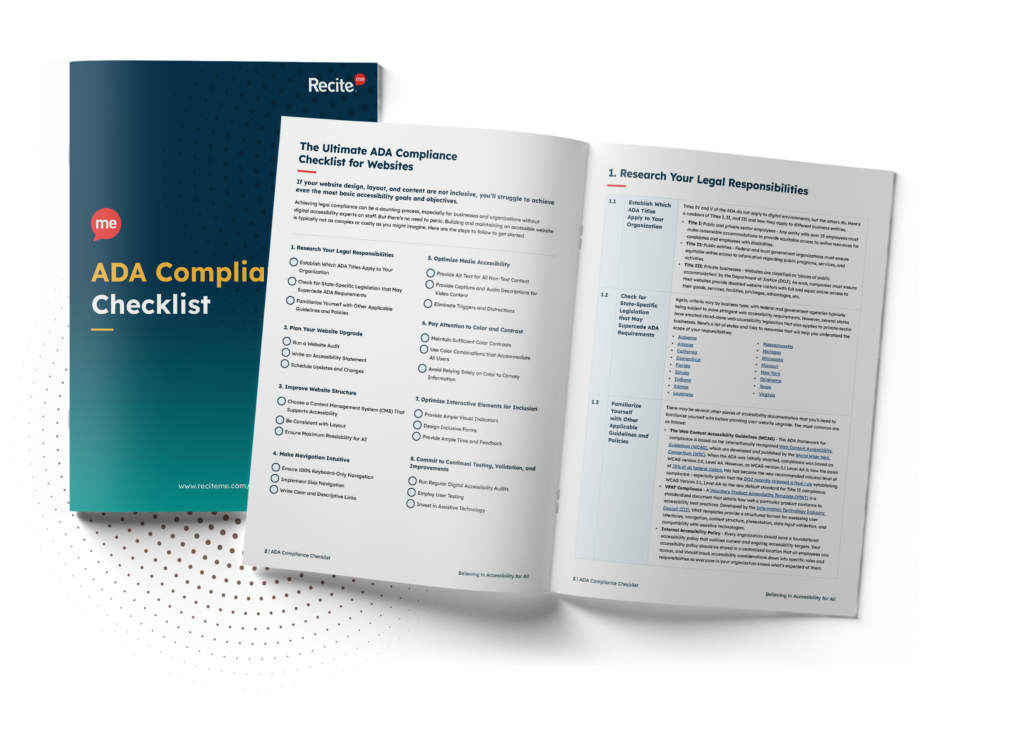
How does the Unruh Civil Rights Act differ from the ADA
At first glance, the Unruh Civil Rights Act and the Americans with Disabilities Act (ADA) might seem to serve the same purpose. Both aim to eliminate discrimination and promote accessibility best practices. However, there are distinct differences between these two important laws, particularly when it comes to their scope and compliance.
Firstly, the ADA is a federal law, which means it has business requirements that serve all states across the U.S. It broadly addresses discrimination against individuals with disabilities and covers a variety of named domains, including employment (Title I), public services (Title II), and public accommodations and commercial facilities (Title III).
The Unruh Civil Rights Act, on the other hand, is a state law specific to California. While it covers similar aspects, it is often considered more expansive in its protection against discrimination, as it covers a wider range of organizations and protected classes. For example, under the Unruh Act, discrimination is prohibited across all business establishments, not just a named selection of domains.
One stark difference between the two legislation lies in how they address digital accessibility specifically. The ADA generally requires that websites and digital content be accessible to individuals with disabilities, but it does not prescribe specific technical standards. The Unruh Act, on the other hand, relies on the Web Content Accessibility Guidelines (WCAG) 2.0, using conformance level AA as the benchmark for digital accessibility compliance. This gives Californian businesses a clear set of guidelines to follow so that their digital content is accessible to all users.

Which Businesses Need to Comply with the Unruh Civil Rights Act?
In the context of the Unruh Civil Rights Act, the term “business establishment” can be interpreted in a lot of different ways, but essentially, any business that offers goods or services to the public in California falls under the act’s purview. This includes:
- Brick-and-mortar stores
- Online retailers
- Restaurants
- Hotels
- Financial institutions
- Entertainment venues
- Professional services
For online businesses, compliance is particularly crucial. If your business has a website, mobile app, or any other digital platform accessible by the public, it must, according to the Unruh Civil Rights Act, be designed and maintained in a way that ensures accessibility for all users, including those with disabilities.
Take, for example, an online retailer that sells clothing nationwide, including to customers in California. This retailer’s website must be accessible to people with visual impairments, hearing impairments, motor impairments, and other disabilities. Assistive technologies and features like text descriptions for images (alt text), captions for videos, and keyboard navigation options are an absolute must for any business wanting to achieve the AA standard stipulated by the act.
Ultimately, there is not enough time in the day or space on this page to identify every business for which the Unruh Civil Rights Act applies. But the simple answer is, every business, particularly those with an online presence.
Are there any Organizations that are not required to be Compliant?
While the Unruh Civil Rights Act applies broadly to every business, there are certain exemptions. However, these exemptions are limited and specific. Some examples include:
- Religious institutions
- Private clubs and organizations
- Non-profit organizations
Churches, synagogues, mosques, and other places of worship, are often considered private entities and are not required to comply with the same standards as for-profit businesses. With that said, if a religious organization operates a side business that is open to the public, such as a daycare center or thrift shop, that aspect of their operations may still be subject to the Unruh Civil Rights Act.
Private clubs are genuinely selective about their membership and not open to the public. Because of this, many of them are also exempt from the act’s stipulations. In order to realize this exemption, these clubs must demonstrate a bona fide selection process and a clear exclusivity in their operations. However, if the club offers services to non-members, such as renting out facilities for public events, those particular services must comply with the Unruh Act.
Nonprofit organizations are not categorically exempt from the Unruh Act. It ultimately depends on whether the nonprofit operates as a business establishment or not. Many nonprofits, especially those providing services or selling products to the public, must comply with the Act. For example, a nonprofit that operates a public-facing website for donations, information, or services must ensure that its digital content is accessible in the same way as any other business.
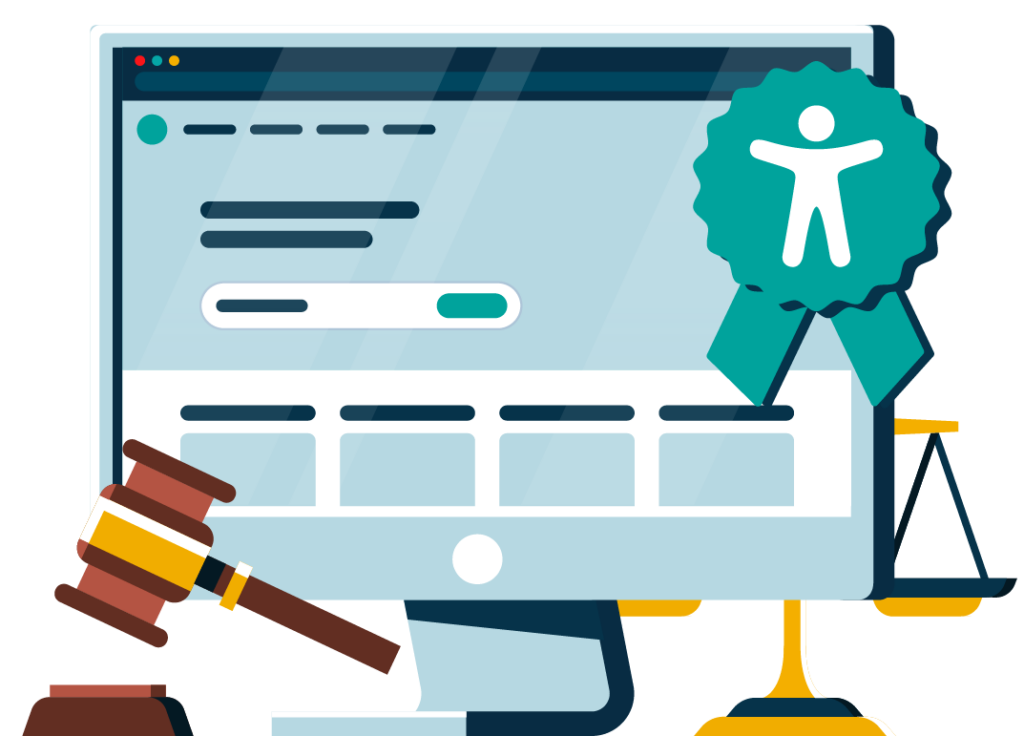
How can you make your Business Compliant with the Unruh Civil Rights Act?
Ensuring your business complies with the digital aspects of the Unruh Civil Rights Act, requires a thorough and proactive approach. As mentioned earlier, the primary benchmark for digital accessibility under the Unruh Act is adherence to WCAG 2.0 level AA. This means that for each guideline laid out in WCAG, your business must be operating level AA or above if it is to comply with the act.
The first thing you need to do is conduct an accessibility audit. This can be done with a tool like Recite Me’s accessibility checker, which evaluates the accessibility of your site, identifying areas for improvement. Automated audits can then be complimented with manual accessibility testing, where users with disabilities scrutinize your site to catch any issues the tools might have missed.
From the audit, you can then begin developing an accessibility plan to address any identified issues. Implement the changes, referring regularly to WCAG 2.0 to ensure you are hitting level AA success criteria, such as keyboard accessibility, live captions on time-based media, 3:1 color contrast ratio for text, and relevant alt text for all images.
Once implemented, it is important to monitor your website, conducting regular audits to identify new accessibility issues. Also, crucially, keep in the know when it comes to WCAG best practices and regulatory updates; as technology evolves, new challenges and solutions for accessibility will emerge, requiring continuous attention.
Get a free automated ADA compliance audit of your website. This audit will highlight compliance violations and provide the recommendations needed to meet ADA compliance standards.
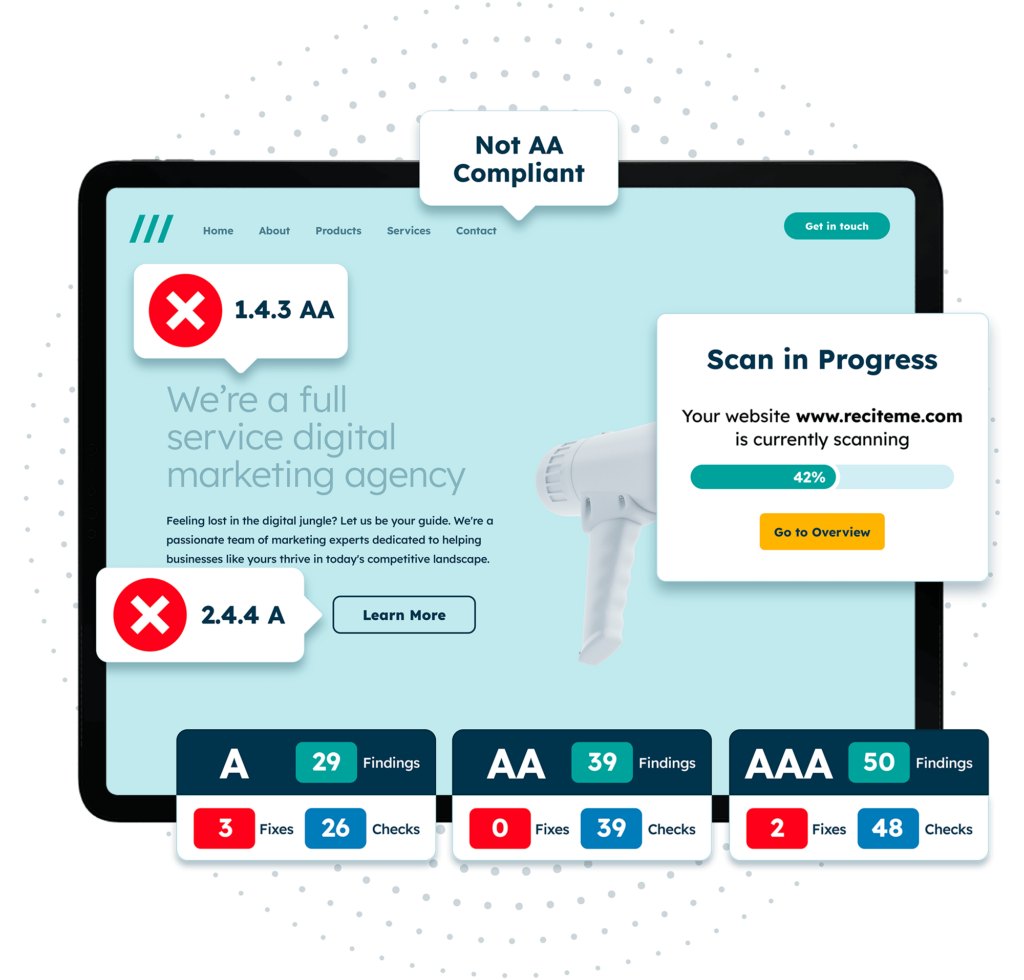
Risks for Businesses Non-compliant with the Unruh Civil Rights Act
Failure to comply with the Unruh Civil Rights Act can have severe consequences for California-based businesses, not just in terms of finances but also in terms of reputation, the effects of which often last longer.
In terms of legal consequences, one of the most obvious risks is the potential for lawsuits. Under the Unruh Act, individuals who experience discrimination, including inaccessibility of a business’s digital content, can file a lawsuit. Successful plaintiffs may be awarded statutory damages of at least $4,000 per violation, plus attorney’s fees, paid by the business deemed to have caused the violation. Given the high costs of litigation and potential for multiple claims from multiple people, these damages can accumulate quickly. For smaller businesses in particular, this amount of financial damage can have lasting effects.
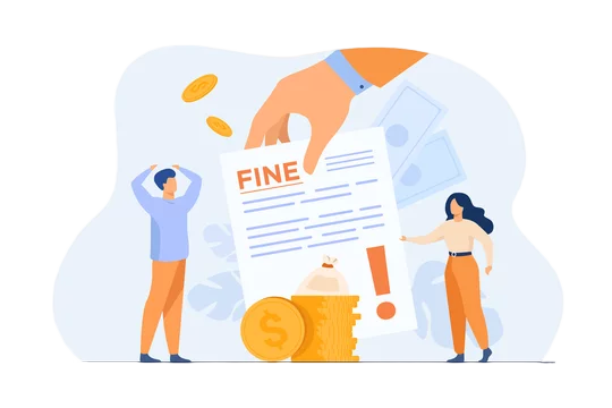
Beyond the direct financial impact of non-compliance, there is an indirect impact on reputation, which can often lead to greater, more lasting damage to a business’s bottom line. In the age of social media, news of discriminatory practices or legal battles can spread rapidly, leading to negative publicity. And given how customers are increasingly favoring ethically sound and socially responsible organizations, failure to comply with the Unruh Civil Rights Act could be seen as a failure to value all customers equally. The fact of the matter is, once customer trust has been eroded, gaining it back is a hard task, and this is reflected in sales revenue.
Perhaps a more subtle risk of non-compliance, however, is the risk of falling behind competitors or losing your competitive edge. Society as a whole is moving toward more inclusive practices, and this is reflected in customer trends. As a result, those organizations who prioritize accessibility will always be one step ahead of those who don’t. This effect will only propagate as more businesses recognize the importance of inclusivity, leaving the non-compliant few to lose significant amounts of market share. What’s more is that accessible websites not only serve customers with disabilities but also tend to offer better overall user experiences, leading to the opposite effect: higher customer satisfaction and loyalty.
How can Recite Me help you become compliant with the Unruh Civil Rights Act?
Here at Recite Me we pride ourselves on being a leading accessibility solutions provider. We help organizations all across the United States become compliant with federal and state-level accessibility compliance laws. There are a number of different tools we use to put you on the right path to digital inclusion, this includes:
Accessibility Checker
Our Accessibility Checker tool is perfect for identifying accessibility issues on your website. It specifically identifies non-compliance with WCAG, which is essential for compliance with the Unruh Civil Rights Act. When the tool completes a scan of your web pages it will create a prioritized action plan of issues for you to fix on your website to become more accessible. Some of the main benefits and functionalities include:
- Identify inaccessible features
- Showcases the accessibility issues
- Provides suggestions on how to fix issues
- Manage accessibility fixes queue
- Track improvements
- Download and share accessibility report
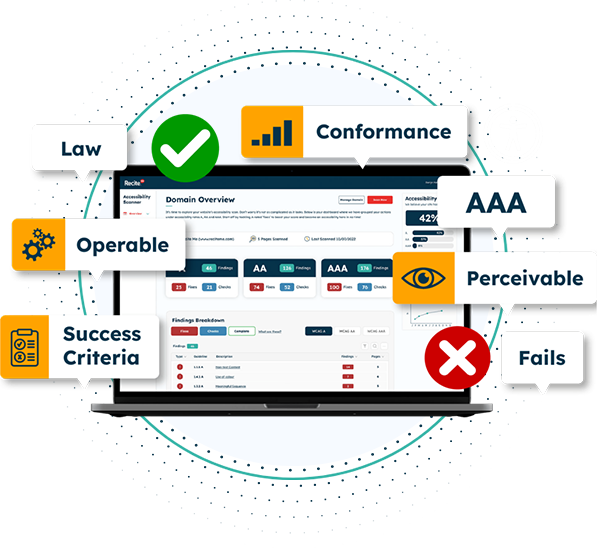
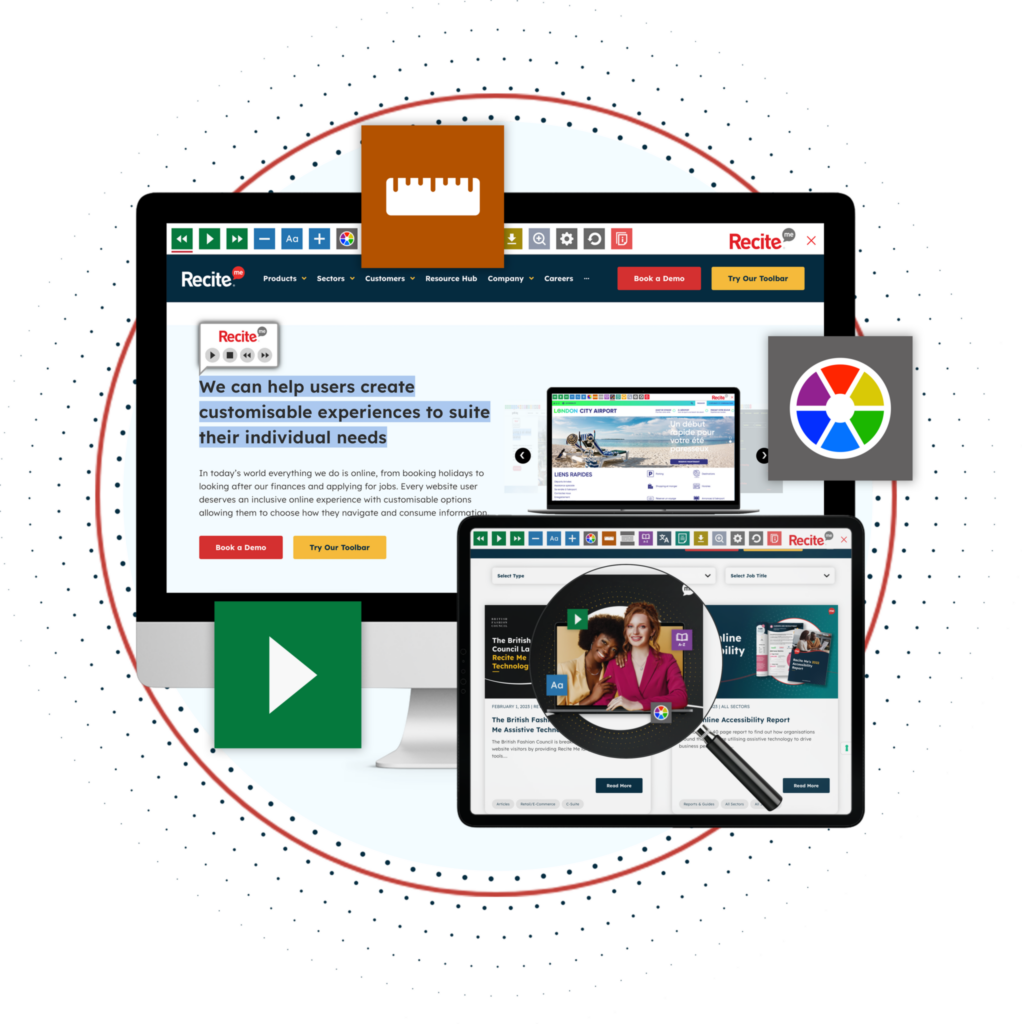
Assistive Toolbar
Level up your digital inclusion with the Recite Me web accessibility toolbar. Our software embeds itself into your website as a usable toolbar and allows users to customize and alter your website to their needs. Some of the main features on the toolbar include:
- Dictionary, Thesaurus and Spell Checker
- Zoom functionality for all web pages
- Translate over 100 languages
- Translator & Screen Reader for PDF Documents
- Text-to-speech Screen Reader
- Convert web content to mp3
- Usable Ruler to make reading easier
- Screen Mask tool to isolate sections of a page
- Change color contrasts
- Change Font size, color and type
Start Your Digital Inclusion Journey
Our team is here to help you on your mission to provide more inclusive online experiences. Get started on your online inclusion strategy today by trying our toolbar or scheduling a free demonstration to see the difference it can make to your business.

